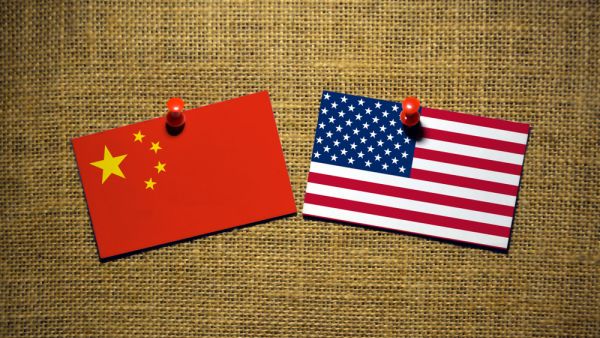The US trade deficit fell to an eight-month low in February as imports from China plunged, temporarily providing a boost to President Donald Trump’s “America First” agenda and economic growth in the first quarter.
The surprise second straight monthly narrowing in the trade gap reported by the Commerce Department on Wednesday was also driven by soaring aircraft exports, which are likely to reverse after Boeing halted deliveries of its troubled 737 MAX aircraft. MAX planes have been grounded indefinitely following two deadly crashes.
Economists warned the trade deficit would remain elevated regardless of whether the United States and China struck a trade deal that was to the White House’s liking because of Americans’ insatiable appetite for cheaper imports.
Talks between Washington and China to resolve the bitter trade war have been dragging. The United States is also embroiled in conflicts with other trading partners, including the European Union, contributing to big swings in exports and imports data in recent months.
“Even if trade negotiations are resolved in such a way as to reduce the bilateral trade deficit with China, one of the Trump administration’s stated goals, this would likely divert trade flows to other countries and have little impact on the top-line US trade deficit,” said Emily Mandel, an economist at Moody’s Analytics in West Chester, Pennsylvania.
The trade deficit tumbled 3.4 percent to $49.4 billion in February, the lowest level since June 2018. Economists polled by Reuters had forecast the trade shortfall widening to $53.5 billion in February.
The politically sensitive goods trade deficit with China - a focus of the Trump administration’s protectionist trade policy - decreased 28.2 percent to $24.8 billion in February as imports from the world’s No. 2 economy plunged 20.2 percent. US exports to China jumped 18.2 percent in February.
Washington last year imposed tariffs on $250 billion worth of goods imported from China, with Beijing retaliating with duties on $110 billion worth of American products. Trump has defended the duties as necessary to protect domestic manufacturers from what he says is unfair foreign competition.
Trump has delayed tariffs on $200 billion worth of Chinese imports. The White House argues that substantially reducing the trade deficit would lift annual economic growth by at least 3 percent on a sustainable basis, a feat that economists have said is impossible because of low productivity and population growth.
The economy grew 2.9 percent in 2018. The dollar was little changed against a basket of currencies, while US Treasury debt prices rose marginally. Stocks on Wall Street fell.
February’s smaller trade deficit suggests the economy will probably avoid a sharp slowdown in growth that had been feared at the start of the year. The goods trade deficit declined 1.7 percent to an eight-month low of $72.0 billion in February.
US Affirms Progress on Trade Deal With China
Trade War Update: Trump Extends China Tariff Deadline
{"preview_thumbnail":"https://cdn.flowplayer.com/6684a05f-6468-4ecd-87d5-a748773282a3/i/v-i-b…","video_id":"b24ab7bf-5e84-4976-97cf-8ed007c5ad94","player_id":"8ca46225-42a2-4245-9c20-7850ae937431","provider":"flowplayer","video":"Top 10 Luxury Hotels in the Middle East"}








